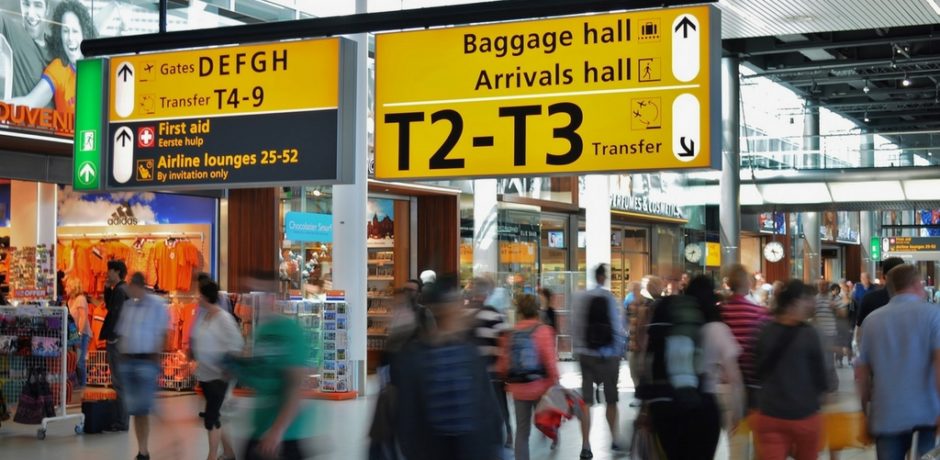Our Blog
Recently, a man was violently removed from an “overbooked” United Airlines flight. This article outlines what your rights in the instance you’re ever voluntarily or involuntarily bumped from a flight departing from the US.
The U.S. Department of Transportation (DOT) is the agency responsible for managing Aviation Consumer Protections and what is known as Fly Rights.
You can read their entire Consumer Guide to Air Travel and this article will only be outlining your rights as they pertain to being either voluntarily or involuntarily “bumped” from a flight. The DOT summarizes the process of overbooking and describes what being “bumped” means in the following:
“Overbooking is not illegal, and most airlines overbook their scheduled flights to a certain extent in order to compensate for “no-shows.” Passengers are sometimes left behind or “bumped” as a result. When an oversale occurs, the Department of Transportation (DOT) requires airlines to ask people who aren’t in a hurry to give up their seats voluntarily, in exchange for compensation. Those passengers bumped against their will are, with a few exceptions, entitled to compensation.”
Here’s my Facebook Live video reviewing passenger rights according to the latest DOT information.
VOLUNTARY BUMPING
- If a select flight has been oversold and there are not enough seats to accommodate the number of ticketed passengers, at the check-in or boarding area, airline employees are required by law to ask for volunteers to take a different flight in exchange for compensation. For passengers who aren’t in a hurry to get to their next destination, the offer (usually an airline voucher) is usually a nice added bonus for taking a later flight.
- The DOT has not mandated the form or amount of compensation that airlines offer to volunteers. The DOT does, however, require airlines to advise any volunteer whether he or she might be involuntarily bumped and, if that were to occur, the amount of compensation that would be due.
Questions to ask airline personnel BEFORE you voluntarily give up your seat on a flight and accept any form of compensation.
- When is the next flight on which the airline can confirm your seat? The alternate flight may be just as acceptable to you. On the other hand, if the airline offers to put you on standby on another flight that’s full, you could be stranded.
- Will the airline provide other amenities such as free meals, a hotel room, transfers between the hotel and the airport, and a phone card? If not, you might have to spend the money it offers you on food or lodging while you wait for the next flight.
- If the airline offers you a flight voucher – a common practice – be sure to ask about any restrictions, how long it is valid for, and if you can use it for international flights.
INVOLUNTARY BUMPING
>>> Related Article: United Airlines Violently Drags Passenger Off An Overbooked Flight
If the airline requests passengers to take a later flight and none volunteer, the DOT requires each airline to give all passengers who are bumped involuntarily a written statement describing their rights and explaining how the carrier decides who gets on an oversold flight and who doesn’t.
According to the DOT, here are the core time distinctions and their associated compensation maximums to remember about involuntarily bumping.
- If you are bumped involuntarily and the airline arranges another flight in which you arrive at your final destination within one (01) hour of your original scheduled arrival time, you are entitled to no compensation.
- If the airline arranges substitute transportation that is scheduled to arrive at your destination between one and two hours after your original arrival time (between one and four hours on international flights), the airline must pay you an amount equal to 200% of your one-way fare to your final destination that day, with a $675 maximum.
- If the substitute transportation is scheduled to get you to your destination more than two hours later (four hours internationally), or if the airline does not make any substitute travel arrangements for you, the compensation doubles (400% of your one-way fare, $1350 maximum).
- If your ticket does not show a fare (for example, a frequent-flyer award ticket or a ticket issued by a consolidator), your denied boarding compensation is based on the lowest cash, check or credit card payment charged for a ticket in the same class of service (e.g., coach, first class) on that flight.
- If you are involuntarily bumped, you can ALWAYS insist your compensation in the form of a check and not an airline voucher.
IMPORTANT TO KNOW
- As a ticketed passenger, you ALWAYS get to keep your original ticket. The aforementioned amounts of denied boarding compensation are a payment for your inconvenience, not to buy back your ticket.
- If you choose to cancel your travel plans, you can request an “involuntary refund” for the flight you were bumped from. (Note: This may not refund you total round-trip ticket. The DOT language only states you are entitled to a refund for the flight you were bumped from.
- Airlines set their own “boarding priorities” — the order in which they will bump different categories of passengers in an over sale situation. When a flight is oversold and there are not enough volunteers, some airlines bump passengers with the lowest fares first. Others bump the last passengers to check in. Once you have purchased your ticket, the most effective way to reduce the risk of being bumped is to get to the airport early. For passengers in the same fare class, the last passengers to check in are usually the first to be bumped, even if they have met the check-in deadline. Allow extra time; assume that the roads are backed up, the parking lot is full, and there is a long line at the check-in counter.
- Upon buying a ticket on an airline, you agree to each airline’s Contract of Carriage: Here are link to to the CoC for Delta, American, United.
RESTRICTIONS TO COMPENSATION
- To be eligible for compensation, you must have a confirmed reservation. A written confirmation issued by the airline or an authorized agent or reservation service qualifies you in this regard even if the airline can’t find your reservation in the computer, as long as you didn’t cancel your reservation or miss a reconfirmation deadline.
- Each airline has a check-in deadline, which is the amount of time before scheduled departure that you must present yourself to the airline at the airport. For domestic flights, most carriers require you to be at the departure gate between 10 minutes and 30 minutes before scheduled departure, but some deadlines can be an hour or longer. Check-in deadlines on international flights can be as much as three hours before scheduled departure time. Some airlines may simply require you to be at the ticket/baggage counter by this time; most, however, require that you get all the way to the boarding area. Some may have deadlines at both locations. If you miss the check-in deadline, you may have lost your reservation and your right to compensation if the flight is oversold.
- For domestic itineraries, airlines are not responsible nor legally required to provide any compensation for a flight that is delayed or canceled. Compensation requirements only begin if you are “bumped” from an oversold flight.
TRAVEL EXPERT RECOMMENDATIONS
- If the airline is requesting volunteers be sure to negotiate the amount/form of compensation they are offering and know that there is no mandated form or amount of compensation that airlines must offer to volunteers.
- Airlines provide employees guidelines for bargaining with passengers, and they may select those volunteers willing to sell accept the lowest offer. If no one seems to be volunteering, your chances of being able to negotiate a better compensation offer may be higher.
- If you are selected to be involuntarily bumped from a flight, request a written statement describing your rights and an explanation how the carrier decides who gets on an oversold flight and who doesn’t.
- If you are involuntarily bumped ALWAYS insist your compensation in the form of a check and not an airline voucher. Cash is king.
- Always check in for a flight as soon as possible. Most airlines allow mobile check-in 24 hours before a flight departs. This will make it less likely that you would be involuntarily bumped if the airline takes into account the order of passenger check-in.
Does anyone have a memorable (good or bad) experience with being either voluntarily or involuntarily bumped from a flight? Shoot me an email or leave a comment below to share your experience with others!
If you have a situation you feel isn’t being properly handled by an airline you can contact the responsible DOT office here:
Office of Aviation Enforcement and Proceedings
Aviation Consumer Protection Division
1200 New Jersey Ave, SE
Washington, DC 20590 – United States
Phone: (202) 366-2220
Business Hours: 8:30 am – 5:00 pm EST, M-F
Source: DOT Consumer Guide to Air Travel

